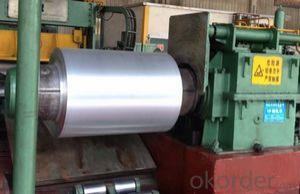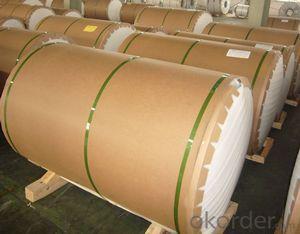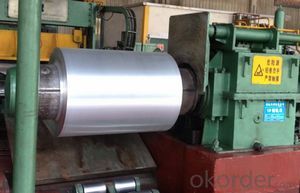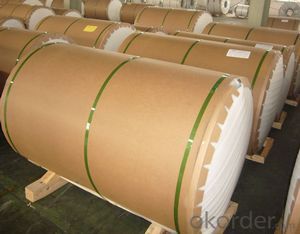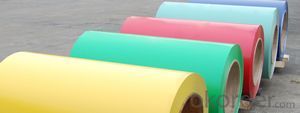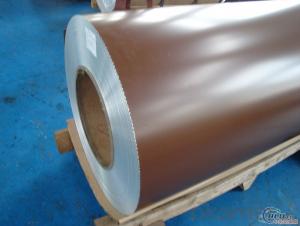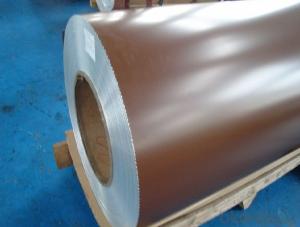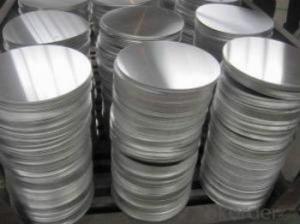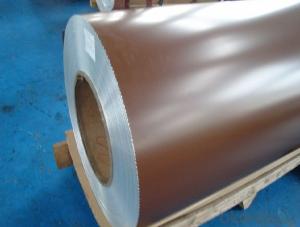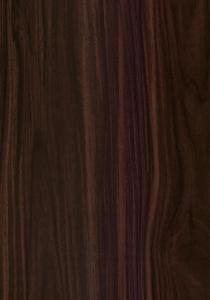3003 Coated Aluminum Coil Embossing Machine
- Loading Port:
- China Main Port
- Payment Terms:
- TT OR LC
- Min Order Qty:
- -
- Supply Capability:
- -
OKorder Service Pledge
Quality Product, Order Online Tracking, Timely Delivery
OKorder Financial Service
Credit Rating, Credit Services, Credit Purchasing
You Might Also Like
supply Mill-finished / coated aluminum plate/sheet/ coil:
Alloy: AA1050,1060,1100,1200,2024,3003,3304,3005,3015,5052,5086,5754,5083,6061,7050,7475,8011, etc
Temper: O, H14/16/18/22/24/32/ H112/H321/T6,T851,T7451,T7351, etc
Thickness: 0.02mm—20mm
Width: 100mm—2000mm (Can be slitted)
Notice: PE coating / PVDF coating / Embossment can be done if required.
- Q: Can aluminum coils be used for architectural applications?
- Yes, aluminum coils can be used for architectural applications. Aluminum is a versatile and lightweight material that offers excellent corrosion resistance, making it suitable for various architectural purposes. Aluminum coils can be used for exterior cladding, roofing, facades, and even interior applications like ceilings and wall panels. The coils can be easily formed, cut, and shaped, allowing for flexibility in design and creative architectural solutions. Additionally, aluminum coils can be coated with various finishes, such as paint or anodized coatings, to provide enhanced aesthetics and durability. Overall, aluminum coils are a popular choice in the architectural industry due to their versatility, durability, and aesthetic appeal.
- Q: Can aluminum coils be used for heat recovery systems?
- Yes, aluminum coils can be used for heat recovery systems. Aluminum is a highly conductive material, which makes it an excellent choice for transferring heat. Aluminum coils are often used in heat exchangers and heat recovery systems to efficiently transfer heat from one medium to another. These coils are designed to maximize surface area, allowing for greater heat transfer. Additionally, aluminum is lightweight and corrosion-resistant, making it durable and suitable for various applications in heat recovery systems.
- Q: Can aluminum coils be used for electrical transmission lines?
- Yes, aluminum coils can be used for electrical transmission lines.
- Q: What do you think of the stainless steel with copper and aluminum core cookware? And what's a good brand?
- Stainless exterior with a conductive core is excellent. I have Lagostina and have been very happy with it. Look at the expensive brands and then look for a deal on one of those, or find a cheaper brand with most of the good features, principle one to look for is a good thick bottom.
- Q: How do aluminum coils contribute to sustainable and green building practices?
- Aluminum coils play a vital role in promoting sustainable and environmentally friendly building practices due to the numerous benefits they offer. Let's explore how these coils contribute to such practices: 1. Enhancing energy efficiency: The lightweight nature and exceptional thermal conductivity of aluminum coils make them ideal for insulation purposes. When incorporated into the building's envelope, these coils effectively minimize heat transfer, thereby increasing energy efficiency. Consequently, this reduces the need for excessive heating or cooling, leading to lower energy consumption and fewer greenhouse gas emissions. 2. Ensuring longevity and durability: Aluminum possesses high resistance to corrosion and has a longer lifespan compared to other materials. This durability significantly decreases the need for frequent replacements, which can have a substantial environmental impact. By utilizing aluminum coils in construction, we can reduce waste and effectively conserve resources. 3. Emphasizing recyclability: Aluminum stands out as one of the most recyclable materials available, boasting a high recycling rate. When aluminum coils reach the end of their life cycle, they can be effortlessly recycled and transformed into new products without any loss in quality. By opting for aluminum coils, we actively support a closed-loop recycling system, reducing the demand for virgin materials and minimizing waste. 4. Minimizing carbon footprint: Aluminum production requires significantly less energy compared to metals like steel or copper. This lower energy consumption leads to a reduced carbon footprint during the manufacturing process. Furthermore, using recycled aluminum in coil production requires even less energy, making it an even more sustainable choice. 5. Harnessing reflectivity: Aluminum possesses high reflectivity, allowing it to deflect sunlight and heat away from the building. This characteristic assists in reducing cooling loads, especially in hot climates, thereby reducing the energy required for air conditioning. By incorporating aluminum coils into roofing or cladding, buildings can mitigate their impact on local microclimates and decrease the urban heat island effect. Altogether, aluminum coils actively contribute to sustainable and eco-friendly building practices by promoting energy efficiency, durability, recyclability, and reducing the carbon footprint. By selecting aluminum as a construction material, we can foster greener buildings that conserve resources, minimize waste, and have a lesser environmental impact.
- Q: Can aluminum coils be used in power generation facilities?
- Aluminum coils are indeed suitable for use in power generation facilities. Aluminum, being a highly conductive material, offers numerous benefits for power generation applications. Its exceptional thermal conductivity allows for efficient heat transfer from the coils, a critical factor in cooling systems within power generation facilities. Moreover, aluminum's lightweight nature simplifies handling and installation, setting it apart from metals such as copper. This lightweight attribute also contributes to cost savings by reducing overall equipment weight. Additionally, aluminum's corrosion resistance is particularly valuable in power generation facilities, which frequently operate in challenging environments. In conclusion, considering their conductivity, thermal efficiency, lightweight nature, and corrosion resistance, aluminum coils present a feasible choice for power generation facilities.
- Q: What are the various applications and purposes for which aluminum coils are utilized?
- <p>Aluminum coils have a wide range of applications due to their lightweight, corrosion resistance, and malleability. They are commonly used in construction for roofing and siding, in the automotive industry for car parts and body panels, in the packaging industry for cans and foils, and in electrical applications for wiring and transformers. Aluminum coils are also used in the manufacturing of heat exchangers, cooking utensils, and various consumer products. Their versatility makes them an essential material in many industries.</p>
- Q: Can aluminum coils be used in heat sinks?
- Yes, aluminum coils can be used in heat sinks. Aluminum is a commonly used material for heat sinks due to its excellent thermal conductivity properties, which allow it to efficiently transfer heat away from the source. The coil shape helps to increase the surface area, enhancing heat dissipation.
- Q: Are aluminum coils more expensive than other coil materials?
- Yes, aluminum coils are generally more expensive than other coil materials. This is mainly due to the higher cost of producing aluminum compared to other metals, such as copper or steel. Additionally, aluminum coils are known for their superior corrosion resistance, lightweight nature, and high thermal conductivity, which further contribute to their higher price point. However, it's worth noting that the cost can vary depending on factors such as the thickness, size, and specific application of the coil.
Send your message to us
3003 Coated Aluminum Coil Embossing Machine
- Loading Port:
- China Main Port
- Payment Terms:
- TT OR LC
- Min Order Qty:
- -
- Supply Capability:
- -
OKorder Service Pledge
Quality Product, Order Online Tracking, Timely Delivery
OKorder Financial Service
Credit Rating, Credit Services, Credit Purchasing
Similar products
Hot products
Hot Searches
Related keywords
